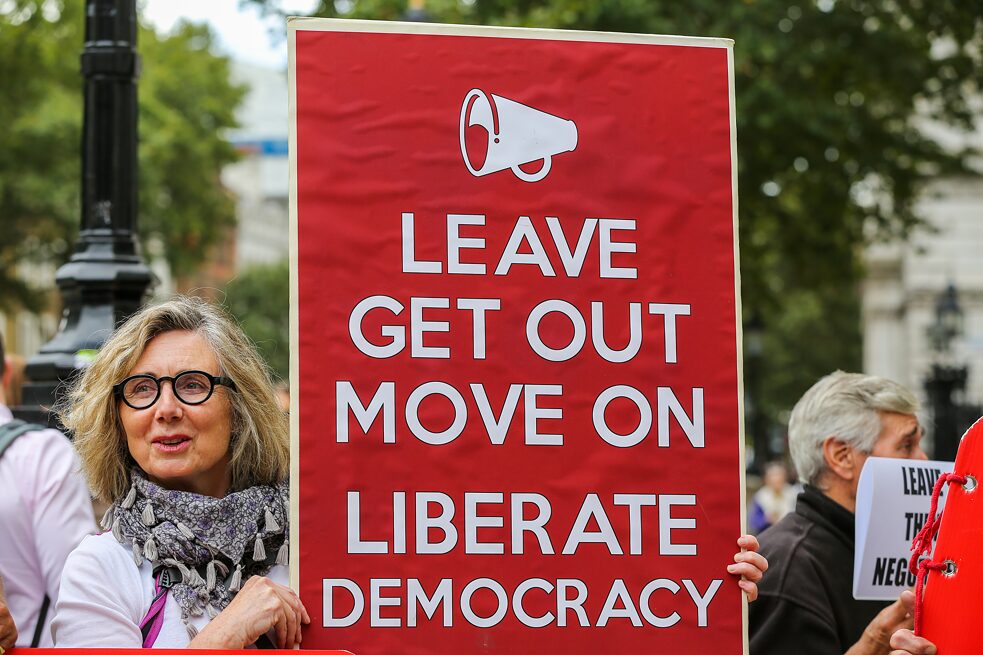Criticising the EU
How expensive, bureaucratic and opaque is the EU really?

The EU is frequently criticised for excessively bureaucratic, putting the needs of the private sector ahead of those of its citizens, and a lack of transparency. But are these accusations actually true, and, if so, what is Brussels doing to address them?
By Eric Bonse
Too expensive
The EU plans to spend the horrendous sounding amount of one trillion euros over the next seven years. Germany’s total annual contribution will increase to 23.5 billion euros by 2027. Voices in Berlin are griping about the expense, and some have even referred to it as a “huge, financial blow”. Yet Germany is not only the largest net contributor to the EU; it is also its largest beneficiary. No other country inside the European market and the eurozone has profited to the extent Germany’s export economy has. And at around one percent of gross domestic product, Germany’s membership in the EU is less expensive than NATO, which targets two percent. The supposedly exorbitantly expensive EU Commission in Brussels only costs around as much as the city council in Cologne. Brexit is the main reason Germany is having to dig a little deeper into government coffers to fill the financial hole left behind when the UK exits the EU. The planned European Green Deal to address climate change is also likely to cost more than anticipated.
Closely allied with business interests at the cost of citizens
TTIP, CETA, Mercosur: for many critics, these abbreviations stand for an EU with close ties to the private sector and alienated from ordinary people. There is some truth to this accusation, as Brussels has often shown more interest in the needs of corporations than of citizens when negotiating free trade agreements. The controversial deal with the Mercosur states of South American was not announced until right after the 2019 European elections, leaving voters feeling their voices were not heard. The EU Commission has shown more respect for citizens’ interests in other decisions though, such as eliminating roaming charges for mobile phones. Some progress has also been made in trade and the most recent negotiating mandates have been made public on the internet. The lasting impression that Brussels simply makes decisions without consulting or considering the people is more the fault of member states, who are happy to take a credit when something goes well in the EU and just as happy to assign blame for any problems to Brussels.
Undemocratic
How democratic is the EU really? The 2019 European election was supposed to provide the answer. The lead candidates promised to promote more democracy in Brussels, but since it proved impossible to elect one candidate to head up the EU Commission, the question is still open to debate. New Commission President Ursula von der Leyen is seen by many as living proof of undemocratic structures. Yet the EU country and government leaders who chose her after seemingly endless bickering were themselves democratically elected. Ultimately, the European Parliament also voted in favour of von der Leyen. In exchange, the Conference on the Future of Europe will start drawing up suggestions for increasing democracy in the EU in 2020 and these reforms will be incorporated into the 2024 European elections.
 Accusations that the EU is not democratic enough became part of the arsenal of arguments used by Brexiteers in the UK.
| Photo: © picture alliance/Steve Taylor/ZUMA Press
Accusations that the EU is not democratic enough became part of the arsenal of arguments used by Brexiteers in the UK.
| Photo: © picture alliance/Steve Taylor/ZUMA Press
Lack of transparency
Dealings in the EU are not always as transparent as both politicians and citizens might wish. Yet this is more down to complex structures than to ill will. Many of the issues the EU Commission deals with are so complex that experts or lobbyists have to be called in to help. The meetings are not always open to the public and take place behind closed doors in the offices or backrooms of Brussels. But the EU is not as opaque as many claim. The European Parliament itself has fought hard to have lobby contacts made public. The transparency register established in Brussels in 2011 is considered exemplarily even in Berlin and provides important information, such as when former German EU Commissar Güther Oettinger met with corporate representatives. More recently, the most important meetings between EU parliamentarians and lobbyists are also being made public, making it easier to trace how EU laws come about.
Bureaucratic
The much ridiculed and legendary guidelines on cucumber curvature are long in the past. Yet the EU still has a reputation for being a bureaucratic monster, something even German anti-bureaucracy commissioner Edmund Stoiber was unable to change. Brussels is setting a new course though, and 34 bills were withdrawn under ex-commission president Jean-Claude Juncker. Juncker has bragged about a 75 percent drop in legislative output compared to his predecessor and “better regulation” was his call to arms. His successor Ursula von der Leyen has also promised to slash red tape, and she wants to drop an old law for every new law passed. This is sure to be met with approval from conservatives, whose leading candidate in the European elections Manfred Weber had even promised to scratch 1,000 laws. Some have warned against such drastic measures though, pointing out that problems like the climate crisis cannot be solved without sufficient guidelines.